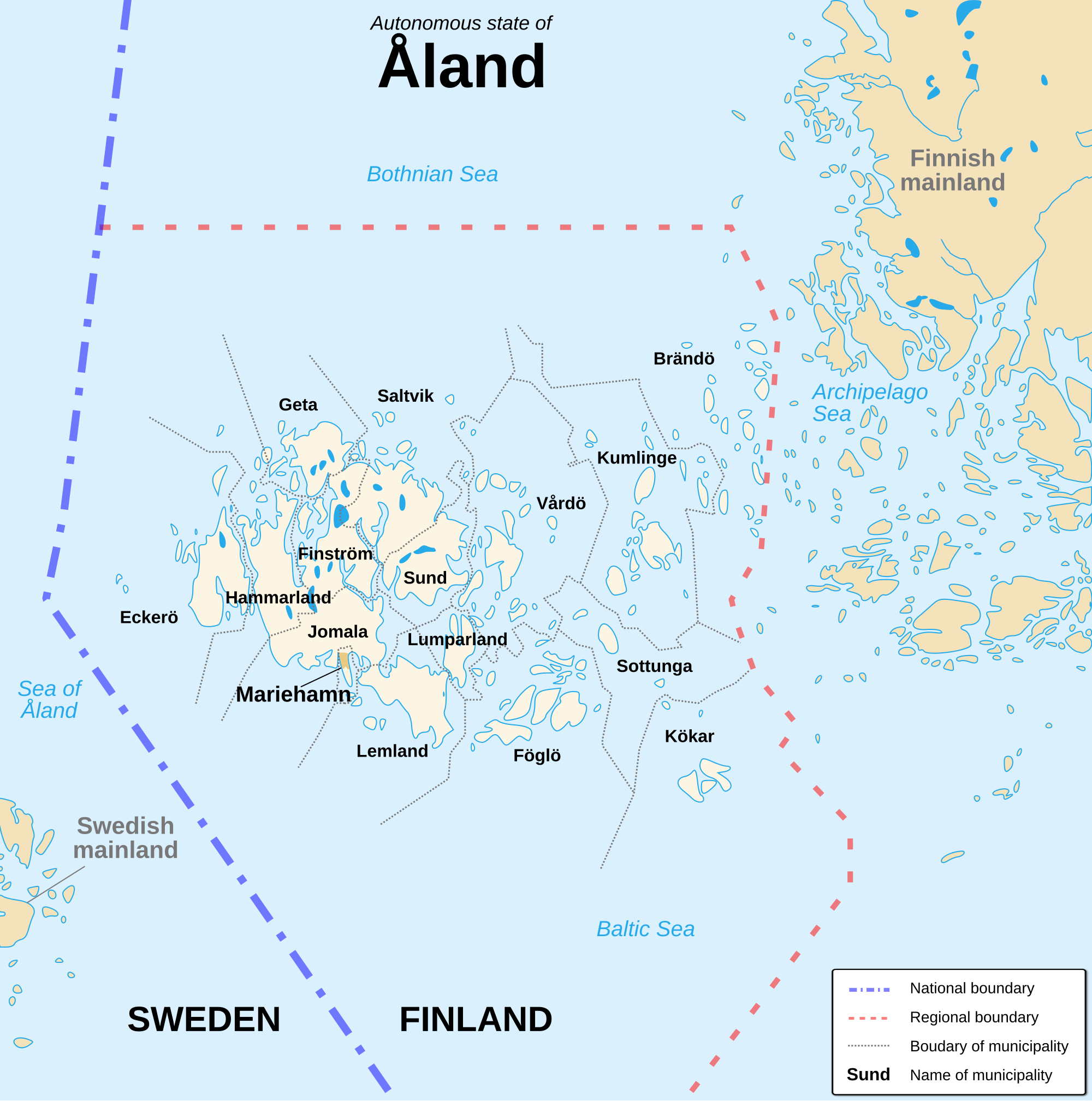 The Åland Islands or Åland (Swedish: Åland, Swedish pronunciation: [ˈoːland]; Finnish: Ahvenanmaa) is a region of Finland that consists of an archipelago lying at the entrance to the Gulf of Bothnia in the Baltic Sea. It is autonomous, demilitarised and is the only monolingually Swedish-speaking region in Finland. Collectively, the islands in the archipelago form the smallest region of Finland, constituting 0.49% of its land area and 0.50% of its population.
The Åland Islands or Åland (Swedish: Åland, Swedish pronunciation: [ˈoːland]; Finnish: Ahvenanmaa) is a region of Finland that consists of an archipelago lying at the entrance to the Gulf of Bothnia in the Baltic Sea. It is autonomous, demilitarised and is the only monolingually Swedish-speaking region in Finland. Collectively, the islands in the archipelago form the smallest region of Finland, constituting 0.49% of its land area and 0.50% of its population.Åland comprises Fasta Åland on which 90% of the population resides[6] and a further 6,500 skerries and islands to its east. Fasta Åland is separated from the coast of Sweden by 38 kilometres (24 mi) of open water to the west. In the east, the Åland archipelago is contiguous with the Finnish Archipelago Sea. Åland's only land border is located on the uninhabited skerry of Märket,[7] which it shares with Sweden.
Åland's autonomous status means that those provincial powers normally exercised by representatives of the central Finnish government are largely exercised by its own government.







